Bill Snyder
-
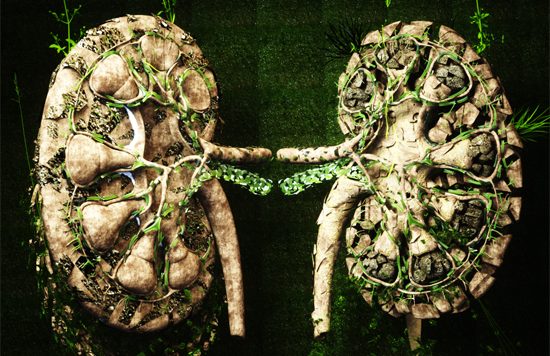
Blood mutations increase risk for acute kidney injury: study
A U.S.-Canadian research collaboration led by Vanderbilt University Medical Center has identified common, age-associated changes in the blood as a risk factor for acute kidney injury, which occurs in more than 1 in 5 hospitalized adults worldwide. Read MoreMar 7, 2024
-

VUMC part of major step to achieving precision medicine
An analysis of genomic data from nearly 250,000 participants in the National Institutes of Health’s All of Us Research Program has identified more than 275 million previously unreported genetic variations, nearly 4 million of which have potential health consequences. Read MoreFeb 19, 2024
-
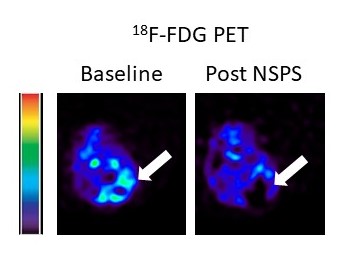
Vanderbilt nanodrug may be a paradigm shift for cancer
A multidisciplinary research team at Vanderbilt University and Vanderbilt University Medical Center has discovered a new way to kill a tumor by disrupting its acidic “microenvironment” without harming normal tissue. Read MoreFeb 7, 2024
-

VUMC study finds molecular switch key to repair of kidney damage
Researchers at Vanderbilt University Medical Center have identified Rac1, a molecular switch that regulates the actin cytoskeleton of epithelial cells in the collecting ducts, as a driver of post-obstructive kidney repair. Read MoreFeb 7, 2024
-

3D brain mapping opens a window to the aging brain
By mapping brain activity in three dimensions, researchers at Vanderbilt University Medical Center have achieved a more detailed picture of how the brain changes with age. Read MoreJan 30, 2024
-
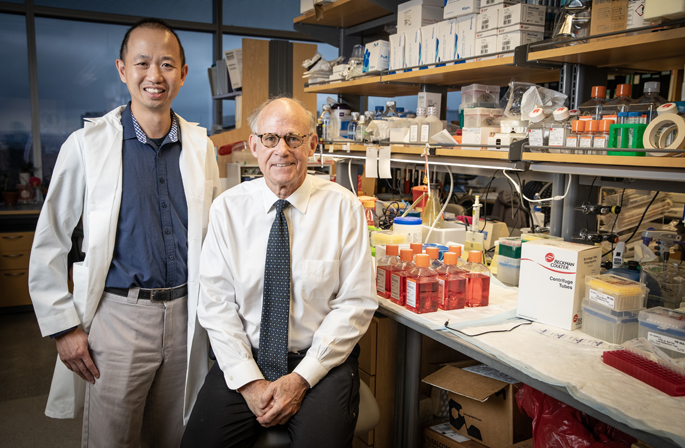
Colorectal cancer ‘cartography’ reveals an avenue to improved immunotherapy
Vanderbilt University Medical Center researchers have discovered why most colorectal tumors escape detection and destruction by the body’s immune system. Read MoreDec 8, 2023
-

Nonprofits support quest to cure childhood epilepsy
Monica Joanna Elnekaveh was doing everything she could to learn what was causing her 18-month-old daughter’s developmental issues. Her relentless quest to find answers eventually led her to Vanderbilt investigative neurologist Jing-Qiong (Katty) Kang, MD, PhD. Read MoreNov 29, 2023
-
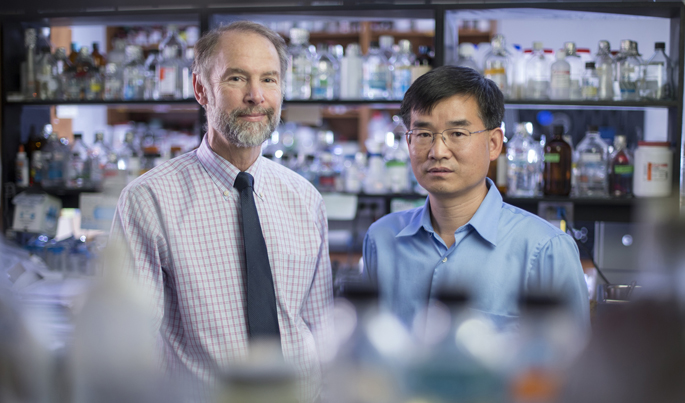
VUMC scientists discover key step to kidney fibrosis
Researchers at Vanderbilt University Medical Center for the first time have shown that activation of the epidermal growth factor receptor (EGFR) is essential for the development of kidney fibrosis, tissue scarring following injury that can lead to kidney failure. Read MoreNov 21, 2023
-

Tumor antigens key to improving cancer immunotherapy: study
Vanderbilt researchers are working to better design immune therapies that attack tumors without also attacking healthy normal tissue in patients. Read MoreNov 17, 2023
-

Twelve at Vanderbilt are among world’s highly cited researchers
Twelve current investigators at Vanderbilt University Medical Center and Vanderbilt University are on this year’s list of scientists whose papers have been cited the most frequently by other researchers. Read MoreNov 15, 2023
-

Most can lower blood pressure by reducing salt, even those on BP drugs: study
New research shows nearly everyone can lower their blood pressure, even people currently on blood pressure- reducing drugs, by lowering their sodium intake. Read MoreNov 13, 2023
-
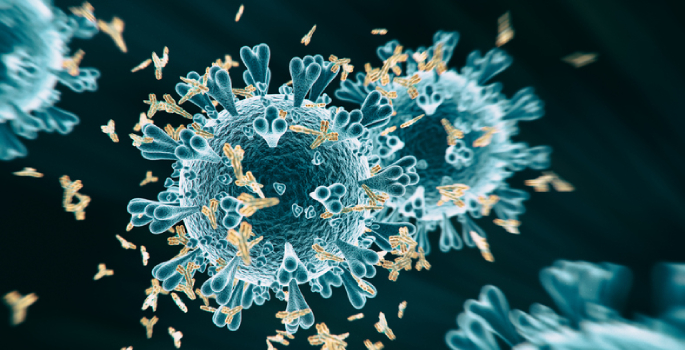
Children’s antibodies highly potent against COVID-19: study
Reporting Nov. 6 in Cell Reports Medicine, Ivelin Georgiev, PhD, and colleagues demonstrated that antibodies isolated from children’s blood samples displayed high levels of neutralization and potency against variants of the COVID-19 virus, SARS-CoV-2, even when the children had not previously been exposed to or vaccinated against those variants. Read MoreNov 6, 2023
-

Pancreas “crosstalk” may influence course of Type 1 and Type 2 diabetes
In the largest study of its kind, researchers at Vanderbilt have identified unexpected alterations in the exocrine tissues of the pancreas that occur in the two major forms of diabetes, and with aging and obesity. Read MoreNov 1, 2023
-

Crowe, Osheroff honored by AAMC
Vanderbilt's James E. Crowe, Jr, MD, and Neil Osheroff, PhD, are among 12 individuals honored by the Association of American Medical Colleges during its 2023 Awards Recognition Event. Read MoreOct 30, 2023
-

VUMC scientists record powerful signal in the brain’s white matter
Vanderbilt researchers report that when people who are having their brains scanned by fMRI perform a task, like wiggling their fingers, certain signals increase in white matter throughout the brain, which has long been thought to play a lesser role the more the brain's more energetic gray matter. Read MoreOct 16, 2023
-

Research fellowship for genetic counselors established at Vanderbilt
The grant will prepare genetic counselors to contribute more fully to the advancement of personalized medicine. Nancy Cox, Ph.D., who directs the Vanderbilt Genetics Institute and the Division of Genetic Medicine, and Martha Dudek, M.S. CGC, director of the Vanderbilt Master of Genetic Counseling program, will serve as co-principal investigators. Read MoreOct 3, 2023
-
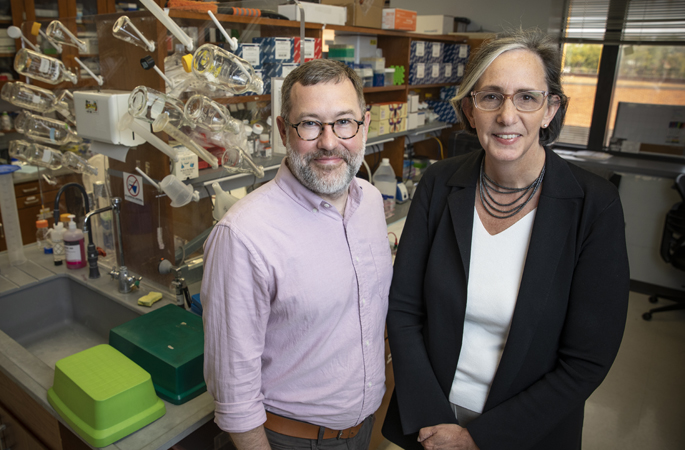
VUMC study reveals critical first steps to cancer
A new study by Vanderbilt researchers provides a remarkably detailed view of the earliest events leading to the development of cancer, and of potential new ways to prevent it. Read MoreSep 20, 2023
-
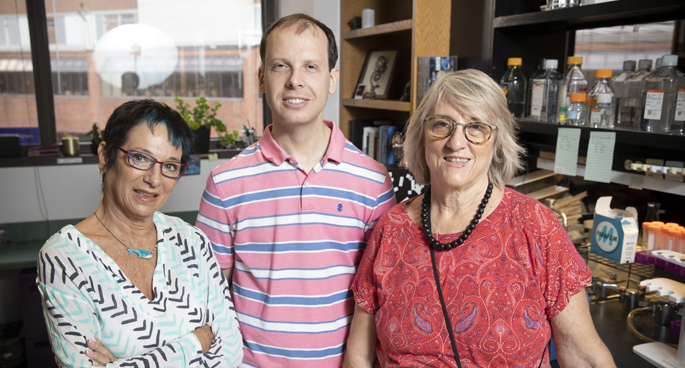
Releasing a brake that drives obesity and diabetes
Vanderbilt researchers have uncovered a potential new way to help curb the rapidly rising worldwide prevalence of metabolic disorders, including obesity and diabetes. Read MoreSep 6, 2023
-

Study reveals genomic code for sepsis in the lungs and kidneys
Researchers at Vanderbilt University Medical Center and the Nashville Veterans Affairs Medical Center have “cracked” the genomic code for sepsis in the lungs and kidneys. Read MoreAug 21, 2023
-

VUMC receives $28 million to lead national study of COVID-diabetes link
Researchers at Vanderbilt University Medical Center have received a four-year, $28 million grant from the National Institute of Diabetes and Digestive and Kidney Diseases to study the relationship between COVID-19 and diabetes. Read MoreAug 2, 2023